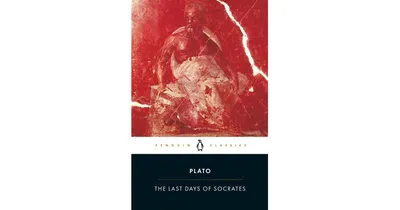Home
The Ancient World's Most Influential Philosophers: The Lives and Works of Confucius, Socrates, Plato, Aristotle, and Cicero



The Ancient World's Most Influential Philosophers: The Lives and Works of Confucius, Socrates, Plato, Aristotle, and Cicero
Current price: $17.87
Loading Inventory...
Size: OS
*Includes pictures Many people argue that Confucius is the most influential person of all time, and if having a significant effect on the greatest number of people is the criterion, he may very well be. China is one of the largest and oldest civilizations on earth, and Confucius has been influential there from almost the beginning: the first Chinese dynasty was founded around 1600 BCE and Confucius lived from 551-479 BCE. There is little evidence that he thought of himself as a harbinger of any kind, but shortly after his death, writings, sayings, and theories based on his life and ideas spread throughout China and even took hold of the imperial court of one of the most powerful and important dynasties, the Han (206 BCE-220 CE). It was during the Han Dynasty that Confucianism became closely tied to state affairs. None of Socrates' works survived antiquity, so most of what is known about him came from the writings of his followers, most notably Plato. What is known about Socrates is that he seemed to make a career out of philosophy, and Plato was intent on following in his footsteps. Yet for all of the influence of Socrates' life on his followers, it was Socrates' death around 399 B.C. that truly shaped them. Plato was so embittered by Socrates' trial in Athens that he completely soured on Athenian democracy, and Aristotle would later criticize politicians who relied on rhetoric; when Aristotle's own life was threatened, he fled Greece and allegedly remarked, "I will not allow the Athenians to sin twice against philosophy." Since Socrates wrote nothing down, or at least nothing that survived antiquity, there has been a wealth of scholarship ever since attempting to determine the person to whom the philosophical positions of the various (and genuine) Socratic dialogues of Plato's should be attributed. Even though Aristotle insisted that Socrates only cared about ethics and held no metaphysical theory of the kind that Plato propounded, the attempt to read the ugly but wise Socrates via the Platonic dialogues continued up to the 20th century. About a decade after Socrates' death, Plato returned to Athens and founded his famous Platonic Academy around 387 B.C., which he oversaw for 40 years until his death. One of Plato's philosophical beliefs was that writing down teachings was less valuable than passing them down orally, and several of Plato's writings are responses to previous writings of his, so Plato's personally held beliefs are hard to discern. However, Plato educated several subsequent philosophers, chief among them Aristotle, and his writings eventually formed the backbone of Western philosophy. Aristotle's influence on Western philosophical thought is marked by an extensive list of crucial issues that both signaled the way forward but at the same time boggled philosophers' minds throughout the centuries. Aristotle's reflections on Being, as well as his rigorous Logic, were his most important philosophical legacy, but he was also an intellectual in the broadest sense of the word. His interests went beyond metaphysical questions and into practical life and practical knowledge, from ethics to politics, rhetoric and the sciences, all of which left a profound impact on Western political thought and ethics. Naturally, this has also made him one of the foundations of knowledge and philosophical thought that subsequent philosophers relied on when forming and refining their own philosophies. Marcus Tullius Cicero (106-43 B.C.) was one of the most famous Romans in his day, and posterity has been even kinder to him. Cicero was a legend in his own time for his oratory abilities, which he used to persuade fellow Senators and denounce enemies like Catiline and Mark Antony, but he was also one of Rome's most prodigious writers and political philosophers. Alongside Pericles, Cicero was one of antiquity's greatest politicians, and he has remained one of the most influential statesmen.


















